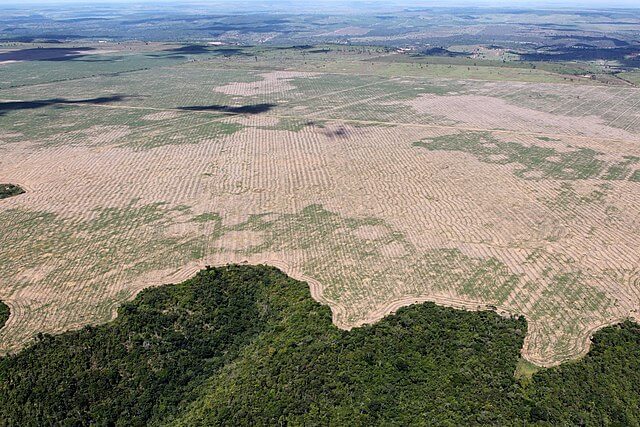
Data from Brazil’s space agency indicates a nearly 50% decrease in the rate of deforestation in the Amazon in 2023 compared to the preceding year.
Brazil’s environment ministry reported that this marks the lowest recorded deforestation rate in the past five years, albeit the deforested area still surpasses the size of New York City by over sixfold.
President Luiz Inácio Lula da Silva, upon assuming office a year ago, pledged to halt deforestation by 2030.
Preliminary figures from the national space agency, Inpe, indicate that 5,153 sq km (1,989.6 sq miles) of the Amazon were cleared in 2023, down from 10,278 sq km in 2022.
President Lula reiterated his commitment to Amazon restoration and the pursuit of environmental offenders during his address at the COP27 climate summit in 2022.
Under his predecessor, Jair Bolsonaro, rainforest destruction surged to a 12-year high.
In a statement on X (formerly Twitter), Brazil’s environment ministry hailed this progress as the inaugural step toward achieving its zero deforestation objective, affirming the government’s steadfastness in combating illegal practices in the Amazon.
The environment ministry attributed the decline in deforestation rates to heightened inspection efforts by the environmental watchdog, Ibama.
Brazilian Environment Minister Marina Silva underscored that the reduced rate reflects Ibama’s ongoing conservation efforts in the rainforest.
The Amazon assumes critical significance in the global battle against climate change, often dubbed “the lungs of the planet” due to its pivotal role in oxygen and carbon dioxide cycles. It harbours approximately three million plant and animal species and one million indigenous inhabitants, with about 60% situated within Brazil.
——————————————————————————
At Natural World Fund, we are passionate about stopping the decline in our wildlife.
The decline in our wildlife is shocking and frightening. Without much more support, many of the animals we know and love will continue in their decline towards extinction.
When you help to restore a patch of degraded land through rewilding to forests, meadows, or wetlands, you have a massive impact on the biodiversity at a local level. You give animals a home and food that they otherwise would not have had, and it has a positive snowball effect on the food chain.
We are convinced that this is much better for the UK than growing lots of fast-growing coniferous trees, solely to remove carbon, that don’t actually help our animals to thrive.
This is why we stand for restoring nature in the UK through responsible rewilding. For us, it is the right thing to do. Let’s do what’s right for nature!
Donate today at https://naturalworldfund.com/ and join in the solution!

